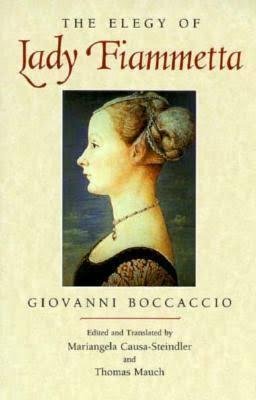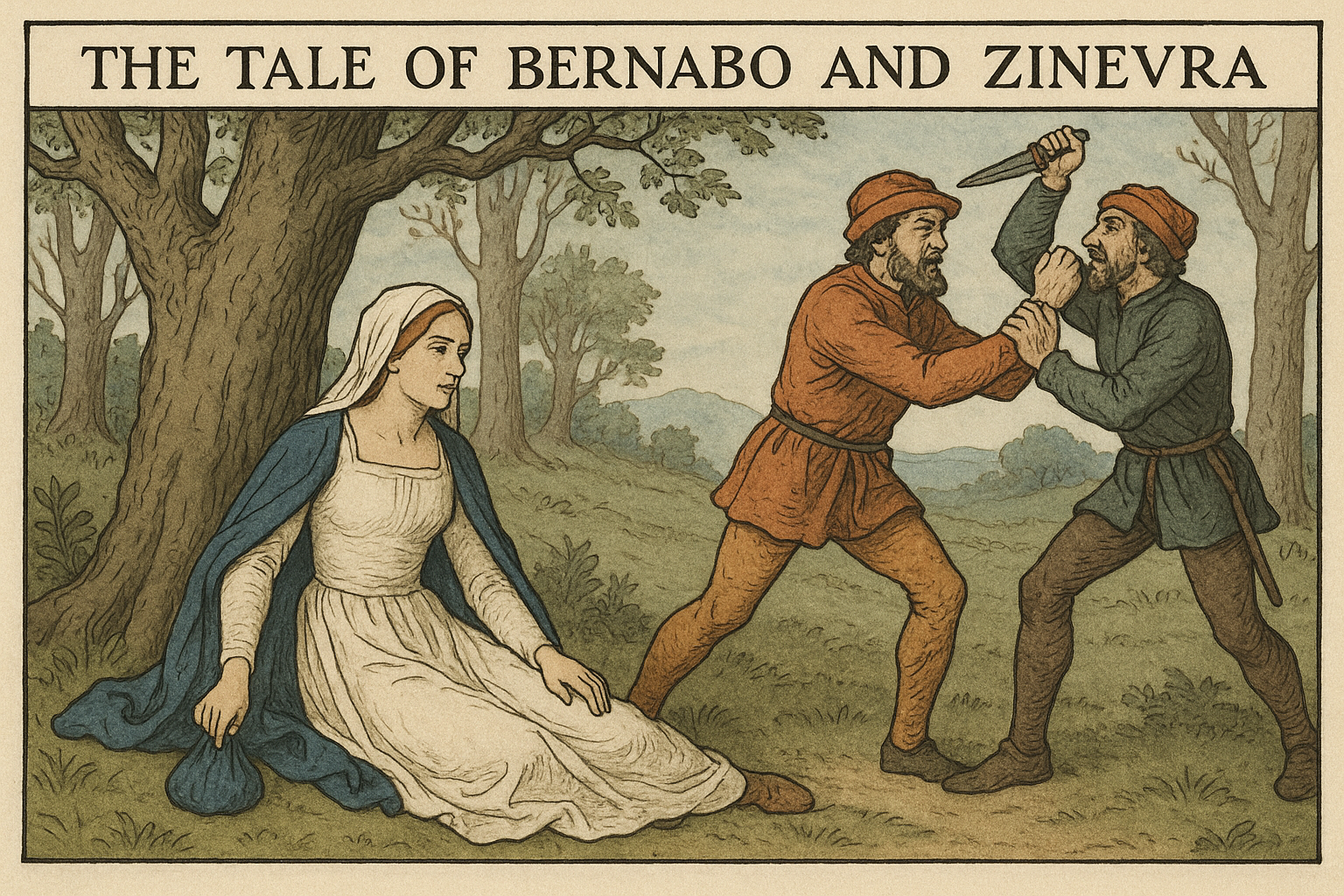Love and Loss in Silence: Sacrifice and Virtue in Federigo's Falcon

Introduction
In Giovanni Boccaccio’s, The Decameron, there is a story that proves love doesn’t always need grand gestures or perfect timing. Not all love stories begin with passion or end with heartbreak—some leave a quiet echo that stays long after the tale is told. In the ninth tale of the fifth day of The Decameron, shows how love can become a source of both pride and sorrow, the power of sacrifice, the pain of timing, and the unexpected reward of patience. While many seek to impress or win affection through status or charm, this tale gently reminds us that real affection often appears in the simplest, and sometimes most painful, forms. Through this tale, we discover how love can be quiet, dignified, and stronger than pride or loss. It gives us a tale that mixes misfortune, silence, and selflessness into a moving narrative about what it truly means to care for someone. Through this tale, real affection often lives in actions, not in words. In this story, it shows how’s a man’s quiet suffering and how one small act of kindness—though done in secret—can change everything. Its emotional power lies in the simple, yet heartbreaking, way love and sacrifice are portrayed. The story’s emotional weight lies not just in the outcome, but in the path that leads there.
Summary
A once-wealthy man named Federigo spends all his fortune trying to win the affection of a noblewoman named Monna Giovanna. Despite his efforts, she remains distant, and he ends up poor, living on a small farm with only a beloved falcon left. Years passed, and his fortunes faded while his feelings remained the same. When Monna’s son becomes very ill and and wishes for Federigo’s falcon, she visits him in hopes of securing it to fulfill her child’s request. Moved by his generosity, and wanting to treat her honorably— give her a proper meal despite his poverty, Federigo, unaware of Giovanna reason, prepares a meal for her—cooking the falcon. Once she knew what he has done, she feels both touched and shocked. Later, after her son’s death, Monna decides to marry Federigo, recognizing the depth of his love.
Analysis
There is a quiet strength in how the tale portrays sacrifice—not through dramatic scenes or long speeches, but through the simple act of giving up something meaningful without expecting anything in return. Federigo’s decision to serve his falcon isn’t just an act of hospitality; it’s a silent symbol of love. The story avoids showing Federigo as pitiful. Instead, it lifts him as someone who, despite losing his wealth, never lost his values or his respect for others.
Monna Giovanna represents how people can grow through grief and realization. At first, her visit seems practical—she wants to save her son. But after witnessing what Federigo gave up for her, her perspective changes. The emotional shift in her character adds depth to the story, making her more than just a noblewoman. She becomes someone who learns to see beyond class, appearances, and expectations.
The tale uses subtle irony in a way that doesn’t feel forced. Federigo’s kindness and generosity shine through his willingness to share what he has, even if it means losing something precious. The falcon is more than just a bird; it becomes a symbol of Federigo’s entire life. It represents his past wealth, his love, and finally, his sacrifice. By giving it up, he gives Monna not only a meal but a glimpse into his true nature. Giovanna’s character grows as she changes from a distant noblewoman to someone who appreciates true loyalty and honesty. This shows how people’s feelings and decisions can develop over time.
Even centuries later, this story remains meaningful. Boccaccio’s tale reflects 14th-century social norms, where men were expected to demonstrate their love through grand gestures and women were often seen as passive. The tale explores the tension between materialism and moral value. Federigo is poor in gold but rich in virtue. Where many often chase after things that look valuable on the outside, this story reminds to look for goodness, patience, and sacrifice. The message it carries reaches across time: love and goodness are not about grand gestures, but about quiet moments of giving without asking anything back. The social commentary here is subtle yet powerful—true nobility lies in action, not inheritance. Even today, this lesson resonates, reminding modern audiences that emotional wealth often outweighs financial prosperity.
Personal Response
There’s something unforgettable about this story that stays long after reading it. This tale is not the love story itself, but how it unfolds. The way Federigo gives his all without expecting anything in return is both sad and admirable. His selfless act felt more powerful than any grand romantic speech and his silent suffering made me think about how love often exists in unnoticed moments. The symbolism of the falcon stayed with me—it wasn’t just a bird; it was everything he had left, offered without hesitation. I appreciated how the story showed growth in both characters, especially Giovanna, who learns to value inner worth over wealth. This tale doesn’t scream love—it whispers it through simple but painful truths. That subtlety made it even more powerful. It made me reflect on how actions, not words, define how much someone is willing to give in the name of love. Even in today’s fast-moving world, where love can be rushed or shallow, this tale reminds us that genuine love waits, gives, and endures. That message makes it one of the most touching stories I’ve come across in classical literature.
Conclusion
The Decameron 5th Day, 9th Story, remains powerful. It speaks a quiet truth—love is shown through actions rather than words, holds a strength that lasts through time. It explores timeless themes of love, sacrifice, and the complexities of human relationships. Federigo’s selfless act and Monna Giovanna’s ultimate recognition of his devotion create a tale that continues to resonate with readers. Its simple yet profound message about the nature of true love ensures its enduring relevance. It shows that even when love seems unnoticed or unreturned, it can grow into something meaningful when the right moment comes. Federigo’s quite devotion and Giovanna’s late but sincere understanding create a powerful story about patience and selfless giving. It create a tale that continues to resonate even today. The lessons it offers—about valuing people for who they are, not what they have—are still just as important today. The story’s ability to evoke strong emotions and provoke reflection on the meaning of love makes it a truly memorable piece of literature.







